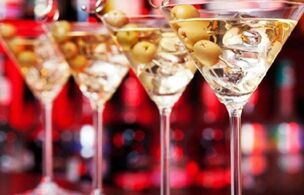点饮料的时候,为什么不该加冰
|
At your next company happy hour, you may want to consider ordering your mixed drinks "neat," or at room temperature-without ice. Business Insider recently asked more than two dozen bartenders to "weigh in on what they'd love to tell customers but can't." Their response: Think twice about ice because it may be unclean. Of course, this is just anecdotal advice from a handful of mixologists. While some bars and restaurants may not rigorously clean their ice machines, others may do so. Here's what you should keep in mind: Yes, in some cases ice has been found to be contaminated:
Some studies and news stories over the past decade lend credibility to these bartenders' warning about ice machines. In 2014, HuffPost spoke to two experts on ice and ice machine contamination. Three main issues were discussed in the piece: mold, bacteria, and whatever is found on peoples' hands. These contaminants can come from a variety of places. Mold can build up in ice machines-especially if they're not cleaned or are turned off for a period of time. And despite the Safe Drinking Water Act in 1974 and EPA standards for clean water, water can become contaminated with bacteria while being frozen and stored from ice making machines or from contact with other contaminated food. A 2011 study by researchers at the University of Nevada, Las Vegas examined the prevalence of bacteria in ice and soda dispensed at Las Vegas restaurants. The study found that 33.3% of ice samples contained heterotrophic bacteria-higher than EPA standards. (The soda samples fared far worse in both categories.) And of course, there's human negligence. Bartenders who work while sick, don't wash their hands before scooping ice, and use their hands to touch ice can contaminate ice from their hands. (Norovirus can be spread this way.) "Most people don't realize that not washing their hands could cause death," Debra Huffman, a microbiologist at the University of South Florida, explained to NBC News in 2006. |









